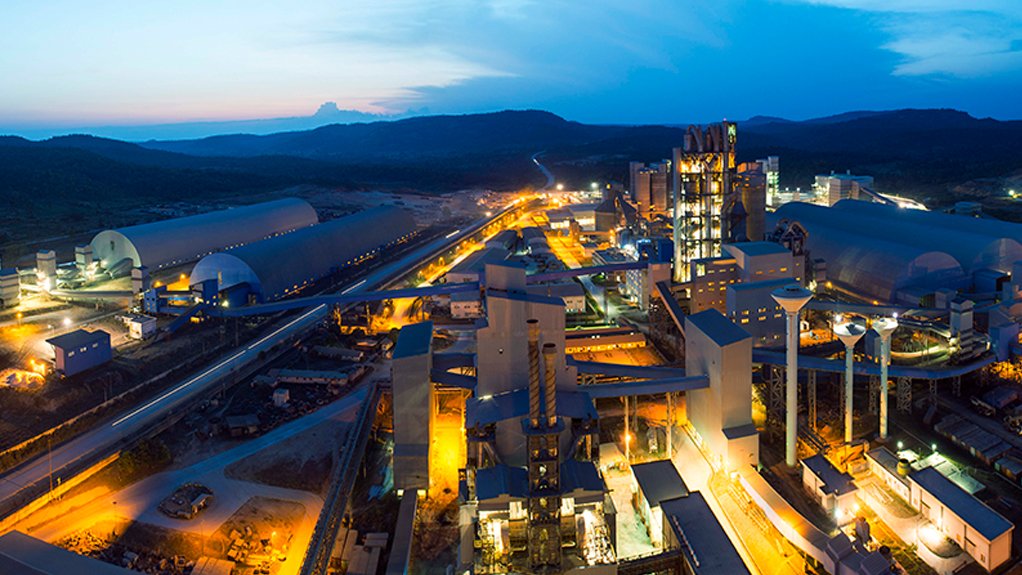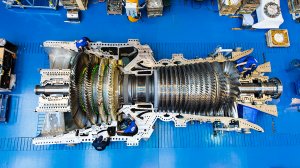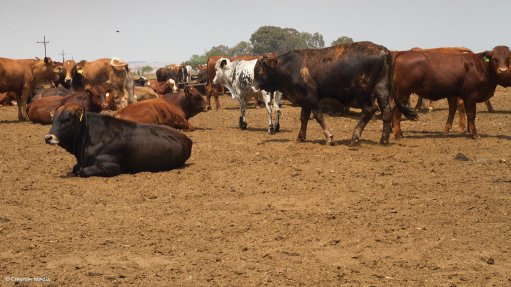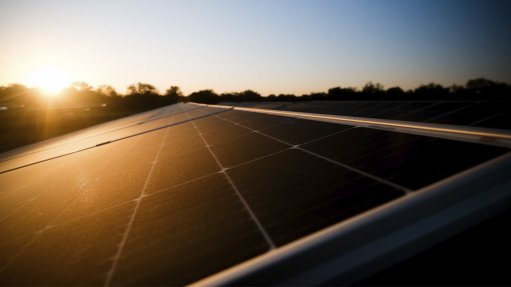Natural gas to play important role in the energy future



COOL TECH GE’s air-cooled HA gas turbine technology turbine has been recognised with two world records for combined-cycle efficiency
GAS FOR GROWTH The industrialisation ambitions of African nations depend on cleaner energy sources such as renewables and gas
Energy solutions company GE expects gas power to play an increasingly important role in the medium- to long-term future of the country’s energy mix as government continues to pursue decarbonisation through balancing the demands between a coal-fired past and a renewables future.
GE Gas Power regional executive Nosizwe Dlengezele says major recent gas discoveries will provide supply in the long term, while local and regional gas resources, including liquified natural gas (LNG), will provide fuel options in the short term.
In sub-Saharan Africa, major gas discoveries have led to an increase in LNG projects across the region, which is expected to lead to increased demand. According to a report published by the International Energy Agency last year, gas demand in Africa is estimated to double by 2040.
“While the path to rapid decarbonisation presents significant challenges in the market, it also creates a great opportunity for gas,” she says, adding that countries globally are realising reduced carbon emissions through coal-to-gas switching and the growth of renewable-energy technologies.
In collaboration with power plant operators, GE is directly involved in the coal-to-gas transformation in the power industry.
Dlengezele says bridging the energy gap in sub-Saharan Africa will require continuous, sequential power improvements and the complete commitment of governments, fuel suppliers, private capital and technology providers.
“An essential and skilled workforce, flexible solutions and collaboration among equipment providers, engineering, procurement and construction companies, financiers, investors and governments are critical to success.”
She notes that there is also opportunity for operators in the energy sector to take advantage of incentives and invest in a combination of renewable and gas technologies to achieve significant reductions in greenhouse-gas emissions.
Further, adequate investment in transmission and distribution networks is also critical.
“We are working with our customers to deliver reliable, affordable and sustainable decarbonisation technologies for their entire GE gas asset base, including gas power generation solutions. We believe in a fundamental role for gas to deliver a rapidly decarbonised energy future,” she says.
While aggressive decarbonisation programmes are implemented globally, renewable-energy supplies can be intermittent in nature, as sunshine, rain and wind speeds vary. Moreover, battery storage solutions remain expensive, often making them economically infeasible, Dlengezele says.
She explains that traditional baseload gas turbines are required to ramp up and down quickly as they are increasingly used to complement intermittent renewable-energy supply to maintain grid stability. Gas also presents the cleanest means of generating electricity from traditional fossil fuels.
“This has led to new investments in gas turbine and combined-cycle plant efficiency, flexibility and reliability to ensure that the sector is ready for the future. Higher flexibility also brings many benefits, including lower carbon dioxide emissions for each unit of electricity generated.”
Dlengezele explains that GE can also adapt gas turbines to burn clean resources, such as hydrogen, for power generation. Globally, more than 75 GE gas turbines have been operating on low-heating value fuels over the past decade, including blends of hydrogen and natural gas, accumulating more than five-million operating hours.
She claims that GE’s gas-to-power machines consume less fuel while creating more power than any other original-equipment manufacturer in the sector.
Meanwhile, GE Gas Power CEO Scott Strazik said in August that the company’s HA technology – an air-cooled version of the company’s H-class gas turbine – has been recognised with two world records for combined-cycle efficiency for the 50 Hz and 60 Hz ranges.
This included a 62.22% combined-cycle net efficiency at the EDF Bouchain power station, in France, in 2016, using a 50 Hz, 9HA.01 gas turbine unit; and 63.08% combined-cycle gross efficiency at electricity company Chubu’s Nishi Nagoya power station, in Japan, in 2018, using a 60 Hz, 7HA.01 gas turbine unit.
“Over the past decade, GE has invested heavily in combustion technology that enables us to have highly fuel-flexible advanced gas turbines while advancing carbon capture and sequestration,” Dlengezele says.
Gas Power in Africa
Industrialisation ambitions of African nations are being deployed at varying degrees of urgency and largely depend on a range of economic, social and political factors.
“However, with the appropriate policies to support the complementary expansion of gas and renewables, Africa could achieve a significant level of economic and industrial growth using cleaner energy sources,” she says.
“With a power plant landscape faced with a significant degree of uncertainty around future supply and demand, gas-fired technologies provide industrial operators and developers with the flexibility to right-size their investments, as they can install small and large increments of power very quickly,” Dlengezele says, adding that gas-fired generation options range from hundreds of kilowatts to hundreds of megawatts.
Gas power can also be deployed rapidly in response to changing market dynamics.
“A 30 MW simple-cycle power plant can be transported by land, sea or air to remote locations and can be generating power in a matter of weeks. A large combined-cycle power plant can be commissioned in two to three years, which is up to two years faster than a comparably sized coal power plant and up to four years faster than a comparably sized nuclear plant,” she concludes.
Article Enquiry
Email Article
Save Article
Feedback
To advertise email advertising@creamermedia.co.za or click here
Comments
Announcements
What's On
Subscribe to improve your user experience...
Option 1 (equivalent of R125 a month):
Receive a weekly copy of Creamer Media's Engineering News & Mining Weekly magazine
(print copy for those in South Africa and e-magazine for those outside of South Africa)
Receive daily email newsletters
Access to full search results
Access archive of magazine back copies
Access to Projects in Progress
Access to ONE Research Report of your choice in PDF format
Option 2 (equivalent of R375 a month):
All benefits from Option 1
PLUS
Access to Creamer Media's Research Channel Africa for ALL Research Reports, in PDF format, on various industrial and mining sectors
including Electricity; Water; Energy Transition; Hydrogen; Roads, Rail and Ports; Coal; Gold; Platinum; Battery Metals; etc.
Already a subscriber?
Forgotten your password?
Receive weekly copy of Creamer Media's Engineering News & Mining Weekly magazine (print copy for those in South Africa and e-magazine for those outside of South Africa)
➕
Recieve daily email newsletters
➕
Access to full search results
➕
Access archive of magazine back copies
➕
Access to Projects in Progress
➕
Access to ONE Research Report of your choice in PDF format
RESEARCH CHANNEL AFRICA
R4500 (equivalent of R375 a month)
SUBSCRIBEAll benefits from Option 1
➕
Access to Creamer Media's Research Channel Africa for ALL Research Reports on various industrial and mining sectors, in PDF format, including on:
Electricity
➕
Water
➕
Energy Transition
➕
Hydrogen
➕
Roads, Rail and Ports
➕
Coal
➕
Gold
➕
Platinum
➕
Battery Metals
➕
etc.
Receive all benefits from Option 1 or Option 2 delivered to numerous people at your company
➕
Multiple User names and Passwords for simultaneous log-ins
➕
Intranet integration access to all in your organisation




















